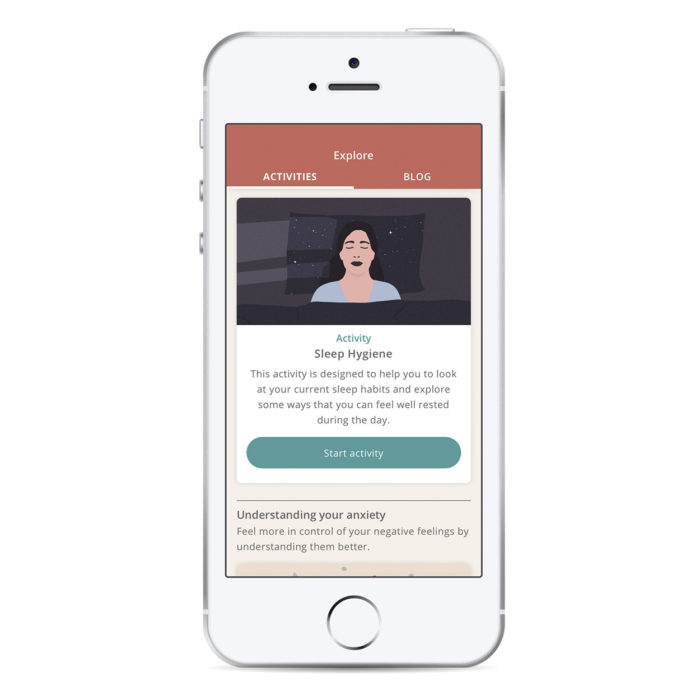▶ Tired of Stress? 3 Ways to Feel Better Fast
Too much stress can make us tired, irritable and may even affect our physical health. Find out how to manage your stress more effectively.
We all feel stressed and nervous from time to time – those butterflies before a first date or that knot in our stomach before an important meeting at work. It’s a normal biological signal telling us that the stakes are high. However, it is easy for stress to become problematic, especially if we’re experiencing it at high levels. If stress often makes you tired, anxious or irritable, this article has you covered.
Why do we get stressed?
Stress is defined as the mental, emotional and physical response to a perceived threat. Anything stressful can activate our so-called sympathetic nervous system. When triggered, this system alerts our whole body that we are facing an important problem and that we should do everything we can to solve it.
Often referred to as our “stress response”, this protective mechanism has evolved over millions of years. Our early human ancestors used to live in much more dangerous times – regularly facing threats from wild animals or neighboring tribes. For these people, life’s problems were usually solved in one of two ways – running away or having a physical fight. This is why you may have heard our stress response being referred to as the “fight or flight” response.
This response involves complex physiological changes that prepare our mind and body for life-threatening situations. The main orchestrator is adrenaline, and its range of effects is staggering!
Adrenaline helps to keep us alive by increasing our strength and endurance in dangerous situations.
Nowadays, fortunately, most of us live in much safer environments where life-threatening situations are rare. As such, the fight or flight response isn’t needed as much anymore.
The problems we face in our lives are very different to those of early humans, and require different solutions. We don’t want to run away from a presentation at work, or have a boxing fight with our date, right?! Unfortunately, evolution hasn’t quite caught up with human progress, which is why stress can cause us all sorts of problems today.
Luckily, once we understand how our stress response works, we can learn how to better manage it and gain more control over our wellbeing!
Can stress make you tired?
The stress response is like a smoke alarm which is set off by burnt toast. Even though you are not in actual danger of fire, the alarm doesn’t know that – it only knows that it should keep ringing just in case.
Similarly, the fight or flight response activates your body’s survival mechanisms just in case there is a serious threat to your life – even though you may just be giving a work presentation!
Protecting yourself from danger is no joke – the body needs to mobilize all available resources that could help you out. This is why stress can feel so overwhelming and exhausting.
Here are just some of the things that happen during the stress response:
- You start breathing more rapidly to get as much oxygen to your muscles as possible. This can make you feel short of breath or perhaps lead to a tightness in your throat. Rapid breathing can also make you feel shaky or dizzy.
- Your heart begins to beat faster to supply energy and nutrients to your cells. This can give rise to sensations like pressure in your chest, or heart palpitations.
- Your muscles may become tense in preparation for a possible action. This tension can make you feel fidgety, restless or even give you physical pain. You may also experience “pins and needles” or feel numb in some parts of your body.
- It’s also common to start feeling hot and sweaty as your body looks to maximize heat loss in preparation for strenuous activity.
As you can see, our bodies don’t mess around when responding to stress!
We might think, “it’s just a bit of stress”, but inside we’re actually preparing for a genuine threat. As a result, stress can be very physically tiring.
While preparing to “fight or flight”, our body also directs energy away from tasks that aren’t of immediate benefit to our survival. As a result, some of these symptoms can occur:
- You may experience digestive problems, like stomach aches, nausea or diarrhea.
- Your mouth might become dry due to reduced salivation.
- You might feel like you have less mental capacity, perhaps feeling more distracted or disoriented.
- You may struggle with sexual dysfunction, including reduced mental desire as well as decreased physical arousal.
What does stress feel like for you?
While the fight or flight response acts in the same way for everybody, we all experience stress differently. It might be helpful to reflect on what your experience of stress is like. Try answering these questions to better understand your own “fight or flight” response.
- Do you only get stressed by specific triggers, or do you feel generally stressed all the time?
- Can you identify what causes your stress, or does it arise seemingly for no reason?
- Where in your body do you feel it? Perhaps it’s an anxious feeling in your stomach, a pressure on your chest or a tightness in your throat?
- Does it come with any other feelings or experiences, like anger, sadness or fatigue?
Reflecting on your unique experience will help you find the right strategies to cope.
What should I do if I’m stressed?
Stress is a natural part of life, but it needs to exist in balance with rest and recovery.
After periods of heightened stress, we need adequate time for our bodies and minds to relax.
This is what our parasympathetic nervous system is for – it helps our body regain strength and energy by counteracting the sympathetic nervous system. In contrast to “fight or flight”, this helps us to “rest and digest”.
Without this important period of recovery, chronic stress can lead to many physical or emotional side effects, such as depression, insomnia and high blood pressure. To help you manage your stress as effectively as possible, follow these 3 evidence-based strategies:
1. Get moving
Paradoxically, one of the best ways to get a rest from stress is to be more physically active. Research shows that exercise can increase neuroplasticity in the brain, which helps prevent negative effects of stress on our health.
Exercise can help to “use up” any remaining nervous energy in your body and leave you feeling more relaxed.
It can be hard to build a habit of exercising regularly, but here are a few tips that can help:
- Remember that the best exercise is the one that you enjoy and can do regularly. It doesn’t matter if it’s cycling, playing Pokemon Go or practicing yoga! It’s worth taking time to explore different activities to find the one that’s right for you.
- Start small and increase your activity slowly. If you’re not used to exercising much, start with short sessions of 15 to 30 minutes once or twice a week. This will help you remain motivated and reduce the risk of fatigue or injury.
- Share your activity with others if possible. Ask a friend to join you on a cycling trip, share your daily steps through a smart watch or attend a social dance class, like salsa. Exercising with others can make it more fun and can also help us feel closer!
2. Practice relaxation exercises
Another great way to manage stress is to practice relaxation exercises. These are special techniques developed by psychologists that can help you release physical tension, ground yourself in the present moment, and gain a more positive outlook on life.
You can try many of these relaxation techniques using the Mind Ease app, including deep breathing, guided mindfulness, calming visualization as well as progressive muscle relaxation.

3. Examine the root cause
While exercise and relaxation can go a long way in helping to combat stress, it is also important to examine the possible root causes of your worries. Seeing a mental health professional such as a therapist or a psychiatrist can be very helpful for this.
In addition, the Mind Ease app can also help you in this process with specialized Explore activities which are designed for your long-term wellbeing. We recommend checking out:
- Know Your Triggers, an activity which helps you examine the factors in your life that are most associated with stress and anxiety, and where you might want to make changes.
- Sleep Hygiene, an exercise that can help you improve your rest and recovery by enhancing the quality of your sleep.
- Know Your Attachment Style, an activity where you can explore how your relationships affect your stress levels.

There are also many articles on our Wellness Blog that can further enrich your learning. For example, you can learn more about emotional exhaustion and burnout or find out how to improve your self-esteem.
Lastly, sometimes it can be helpful to reach out to your doctor to discuss any physical symptoms that you may experience from stress. Whether it’s an upset stomach, chest pains or persisting headaches, your doctor can help you find other ways to treat these issues.
On behalf of the Mind Ease team, we wish you the best of luck in combating your stress and finding more strength and peace in your life.





